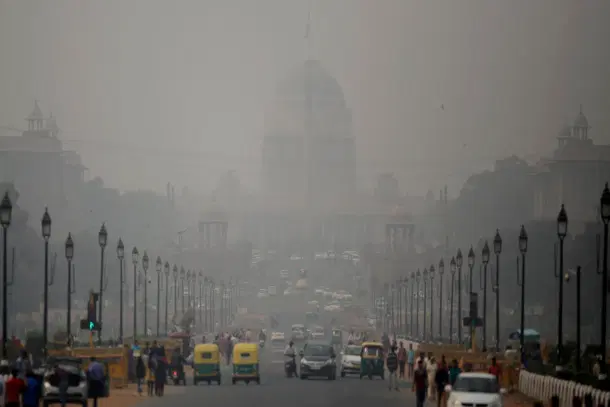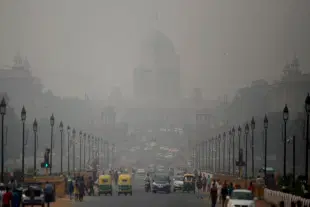News Brief
Delhi Declares Stage-I Action Under GRAP As Air Quality Dips To ‘Poor’ Category
Arjun Brij
Oct 15, 2025, 12:59 PM | Updated 12:59 PM IST
Save & read from anywhere!
Bookmark stories for easy access on any device or the Swarajya app.


Delhi’s air quality has hit a concerning level, with the city recording a daily average Air Quality Index (AQI) of 211, categorised as ‘Poor’, according to the Central Pollution Control Board’s (CPCB) daily AQI Bulletin.
In response, the Commission for Air Quality Management (CAQM) Sub-Committee on GRAP convened on Tuesday (14 October) to assess the prevailing pollution scenario across Delhi-NCR.
Following the review, the Sub-Committee decided to invoke Stage-I (‘Poor’ Air Quality) measures under the Graded Response Action Plan (GRAP) across the entire NCR with immediate effect.
Agencies responsible for implementation are directed to closely monitor and enforce all measures, ensuring AQI levels do not worsen further.
The Sub-Committee also appealed to citizens to actively participate in reducing pollution by following the Citizen Charter of Stage-I, which includes measures such as keeping vehicle engines tuned, maintaining proper tyre pressure, updating PUC certificates, turning off idling engines, opting for hybrid or electric vehicles, avoiding littering, reporting polluting activities via apps, planting trees, and celebrating festivals in an eco-friendly manner.
Stage-I GRAP encompasses a 27-point action plan targeting both government agencies and citizens. Key measures include dust mitigation at construction sites, mechanised road sweeping, water sprinkling, proper handling and transport of construction and municipal waste, anti-smog gun deployment, strict enforcement against open burning of biomass and solid waste, regulating vehicular emissions, diversion of non-destined truck traffic, and monitoring industrial compliance with emission norms.
Additional steps involve ensuring uninterrupted power supply to reduce diesel generator use, banning coal and firewood in eateries, and disseminating pollution information via social media, mobile apps, and bulk SMS.
The Sub-Committee affirmed it will continue to monitor air quality closely and review the situation periodically, guided by forecasts from the Indian Meteorological Department (IMD) and IITM.
Please click here to add Swarajya as your preferred and trusted news source on Google
Arjun Brij is an Editorial Associate at Swarajya. He tweets at @arjun_brij




